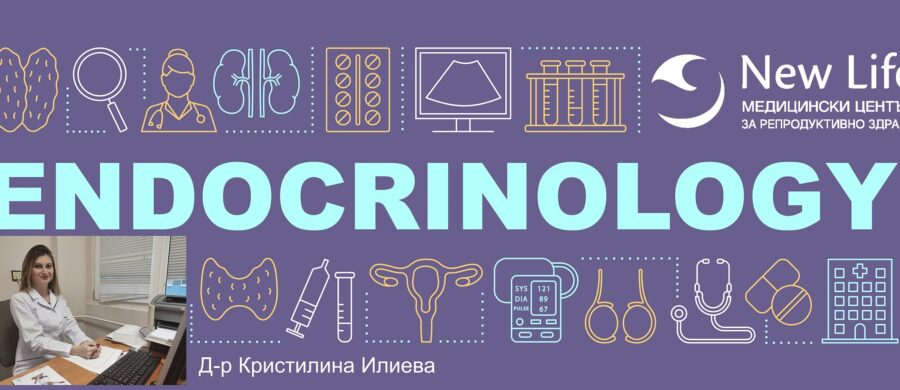THYROID GLAND AND PREGNANCY
The thyroid gland is located in front of the neck. It is made up of two lobes – right and left, which are connected to each other by isthmus. In shape, the body resembles a butterfly. Under the influence of TSH (thyroid-stimulating hormone, thyrotropin), secreted by the pituitary gland, the thyroid gland produces T4 (thyroxine) and T3 (triiodothyronine).
The thyroid gland affects all organs and systems – cardiovascular, nervous, digestive system and reproductive system. It is very important about metabolism and psyche. Disorders of thyroid hormones in women can cause disruption of ovulation, menstruation and even lead to infertility. Sometimes the thyroid gland synthesizes too many hormones – a state of hyperfunction (hyperthyroidism) or too little – hypofunction (hypothyroidism).
The following symptoms can be seen in various forms of hyperthyroidism: • nervousness, emotional lability, hyperkinesis • increased sweating, heat intolerance • palpitations • easy fatigue and shortness of breath with physical exertion • weight loss with increased appetite, rarely – weight gain • increased, rarely decreased appetite • hair loss • increased intestinal motility, diarrhea • swelling of the lower extremities • sleep disturbance • polyuria • menstrual disorders, decreased libido
Symptoms of hypothyroidism: • fatigue • weight gain • dry skin and chills • yellowish skin color • hair loss • hoarse voice • goiter • delayed reflexes • ataxia (uncoordinated movements of the limbs) • constipation • memory impairment • decreased concentration • depression menstrual disorders and infertility • myalgias • hyperlipidemia • bradycardia • hypothermia • myxedema
Thyroid hormones are crucial for the normal development of the brain, nervous system and fetal growth.
During pregnancy, the thyroid gland grows in size by at least 10%, the need for thyroid hormones increases significantly as well as the need for essential elements contained in thyroid hormones such as iodine.
The daily iodine intake during pregnancy and lactation should be at least 250 µg, but should not exceed 500 µg due to the risk of potential thyroid dysfunction. Pregnant and lactating women can meet a significant proportion of their iodine needs through the use of: • iodized salt • foods made with iodized salt (bread, cheese, milk) • natural sources of iodine (fish and seafood)
Iodine-containing combination preparations that contain vitamins and minerals can be taken during pregnancy. Screening for thyroid dysfunction during pregnancy is performed in the following cases:
women with clinical symptoms of thyroid disease
women with elevated thyroid antibodies or goiter
women after thyroid surgery
women treated with levothyroxine
women over 30 years of age
family history of thyroid disease
women with type 1 diabetes mellitus or other autoimmune disease
women with a previous abortion or premature birth
multiple pregnancy
obesity (BMI> 40 kg / m2)
administration of Amiodarone, Lithium, iodine-containing X-ray contrast agents in the last weeks before pregnancy
women from iodine deficient regions
What are the normal reference values for TSH in pregnant women?
- first trimester: 0.1 – 2.5 mIU / L;
- second trimester: 0.2 – 3.0 mIU / L;
- third trimester: 0.3 – 3.0 mIU / L.
Explicit hypothyroidism in pregnant women is associated with an increased risk of complications: • premature birth • miscarriage • preeclampsia • gestational hypertension • gestational diabetes • low birth weight • adverse effects on neuro-cognitive development of the fetus • low IQ of the offspring
Subclinical hypothyroidism during pregnancy may also lead to an increased risk of preterm birth, miscarriage, preeclampsia, gestational hypertension, gestational diabetes, impaired cognitive function of the newborn
Untreated hyperthyroidism during pregnancy can lead to: • miscarriage • premature birth • low birth weight • preeclampsia • thyrotoxic crisis
It can cause various changes in the fetus, such as congenital malformations, delayed intrauterine growth, low birth weight, tachycardia, goiter, fetal death and more.
HOW DOES HASHIMOTO’S THYROIDITIS AFFECT YOUR WEIGHT AND YOUR CHANCES OF CONCEIVING?












